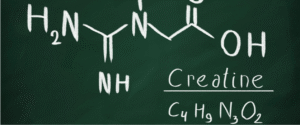
Why Is Chemistry Hard? Exploring the Challenges [2025]
As you delve into the fascinating world of chemistry specially organic chemistry, you might find yourself pondering a common question: Why is chemistry often considered a challenging subject? This scientific discipline demands not only a grasp of complex theories and intricate formulas but also the ability to apply abstract concepts to real-world phenomena. Whether you are a student grappling with its intricacies or an educator striving to demystify its complexities, understanding the hurdles of chemistry is crucial. In this article, we explore the myriad challenges that make chemistry uniquely difficult and offer insights into navigating this demanding yet rewarding field. ChemEd overcome such difficulties students face in organic chemistry homework or in tutorship hurdles.
The Complexity of Chemistry: Why Is Chemistry So Hard?
Intricacies of Chemical Concepts
Chemistry is a tapestry of intricate concepts that interlace to form a complex subject. At its core, chemistry investigates the composition, structure, properties, and changes of matter. The challenge often lies in connecting abstract theoretical concepts with tangible real-world phenomena. For instance, understanding molecular structures can be daunting without visual aids or models. Students frequently encounter difficulties in visualizing the three-dimensional shapes of molecules and how these structures influence their interactions and reactions.
Mathematical Demands
Adding to this complexity is the mathematical component embedded within chemistry. From balancing equations to stoichiometry and thermodynamics, math is integral. Many learners find themselves grappling with these quantitative aspects, which require a solid foundation in algebra and calculus. Thus, the question, “how hard is chemistry?” often arises when students face the dual challenge of mastering both scientific concepts and mathematical calculations simultaneously.
The Precision Required
Moreover, precision is paramount in chemistry. Experimental procedures demand meticulous attention to detail, accuracy in measurement, and a systematic approach to data analysis. Laboratory work exemplifies why chemistry is so difficult for some; a minor miscalculation or procedural error can lead to significant deviations in results. This precision is not merely an academic exercise but a necessary skill for real-world applications in fields such as pharmacology and materials science.
Conceptual Integration
Finally, chemistry is a cumulative subject. Each new topic builds upon previously acquired knowledge. For learners, this means that gaps in understanding can accumulate, making it feel as though chemistry is hard throughout their educational journey. To succeed, students must synthesize information across various topics, creating a cohesive understanding of the subject as a whole. This integration requires both dedication and critical thinking, highlighting why chemistry is challenging yet rewarding.

Key Concepts That Make Chemistry Hard to Grasp
Abstract Nature of Chemical Concepts by ChemEd
One of the primary reasons why chemistry is hard for many learners is its abstract nature. Unlike more tangible sciences, chemistry often deals with molecules, atoms, and subatomic particles that cannot be seen with the naked eye. This makes it difficult for students to form a natural connection with the subject, as visualizing these minute entities demands a strong ability to imagine and conceptualize. Moreover, the language of chemistry involves a unique set of symbols and equations that represent these invisible components, adding another layer of complexity.
Complexity of Chemical Reactions by ChemEd
Chemical reactions are central to the study of chemistry, yet they can be intricate and difficult to comprehend fully. Each reaction involves a transformation of substances, where reactants are converted into products through a series of steps. Understanding why is chemistry so hard often boils down to grappling with these processes, as they require the memorization and application of numerous rules, exceptions, and conditions. The balancing of equations, understanding of reaction mechanisms, and predicting reaction outcomes are skillsets that require both rote learning and analytical thinking.
Interdisciplinary Nature by ChemEd
Chemistry is not an isolated discipline; it frequently intersects with other fields such as physics and biology. This interdisciplinary characteristic can make chemistry more challenging, as it demands a broader foundational knowledge. For example, principles of physics are often needed to understand molecular interactions, while biological chemistry delves into the complex processes within living organisms. Therefore, students may find chemistry difficult because it requires synthesizing information from various scientific domains, making it a multifaceted and demanding area of study.
By understanding these key concepts, it becomes clearer why chemistry is so difficult for many learners. Gaining proficiency in chemistry involves overcoming these challenges through practice, dedication, and a willingness to engage with the abstract and complex nature of the subject.

How Hard Is Chemistry Compared to Other Sciences?
The Complexity of Chemical Principles
Chemistry is often perceived as daunting due to its intricate principles and abstract concepts. Unlike biology, which is largely observational and descriptive, chemistry demands a deep understanding of the theoretical underpinnings and mathematical data interpretations. Chemical reactions, molecular structures, and stoichiometry require a firm grasp of how atoms interact, often explained through complex equations and models by ChemEd. This abstract nature can make it more challenging for some to visualize compared to the more tangible aspects of physics or biology.
Interdisciplinary Nature and Broad Scope
Chemistry’s broad scope, touching upon biology, physics, and environmental science, can make it particularly challenging. The interdisciplinary nature requires you to master a diverse range of topics. For instance, organic chemistry explores molecular structures, while physical chemistry dives into thermodynamics and quantum mechanics. This breadth can be overwhelming, as it necessitates not just knowledge of chemistry but also an understanding of how it interacts with other scientific domains.
Mathematical Demands
Another layer of complexity arises from chemistry’s reliance on mathematics. Unlike other sciences, chemistry often incorporates advanced mathematics to explain theories and experimental results. From balancing equations to understanding kinetic models, the mathematical rigor contributes significantly to why chemistry is hard for many students. Additionally, applying mathematical equations to predict chemical behaviors demands both precision and an analytical mindset.
In summary, chemistry is hard compared to other sciences due to its abstract concepts, interdisciplinary nature, and reliance on mathematics. These aspects collectively contribute to the perception of why chemistry is so difficult, but they also underscore the fascinating intricacies that make chemistry a cornerstone of scientific discovery.

Why Is Chemistry So Difficult? Addressing Common Misconceptions
The Abstract Nature of Chemistry
One of the primary reasons many perceive chemistry as hard is its abstract nature. Unlike disciplines that rely heavily on tangible observations, chemistry often deals with microscopic particles and unseen forces. Concepts such as atomic structures, chemical bonding, and electron configurations can be challenging to visualize, making it difficult for students to grasp the fundamentals. Understanding that these elements operate on a molecular level, beyond what can be seen or touched, is crucial. Visual aids, models, and simulations are invaluable tools that can bridge this gap, offering concrete representations of abstract ideas.
The Language of Chemistry
Chemistry is often described as having its own language—a complex mixture of symbols, formulas, and equations. This unique lexicon is essential for communicating chemical concepts effectively, yet it can be intimidating for newcomers. Learning the nomenclature, the periodic table’s symbols, and equation balancing requires time and practice. However, once these elements are mastered, they become a powerful means of expressing intricate chemical reactions succinctly and precisely. Embracing this language as a key to unlocking the subject’s intricacies will aid greatly in understanding how hard is chemistry.
Mathematical Demands
Another factor contributing to why chemistry is so difficult is its significant reliance on mathematical principles. From calculating molar masses to using Avogadro’s number, math is interwoven throughout chemistry. Students often find themselves needing to call upon algebra, geometry, and even calculus skills. This intersection of disciplines can be daunting, but it’s also what makes chemistry a versatile and insightful field. Strengthening mathematical skills can alleviate much of the anxiety associated with chemistry, transforming it from a formidable challenge into a more approachable science.
Strategies to Overcome the Challenges of Learning Chemistry
Embrace Conceptual Understanding
Overcoming the perception that chemistry is hard begins with building a strong foundation in its core concepts. Delve into understanding the periodic table, chemical bonds, and reactions, which serve as the bedrock for more advanced topics. Focus on conceptual understanding rather than rote memorization. This approach not only enhances retention but also facilitates the application of knowledge to solve complex problems.
Develop Problem-Solving Skills
One reason why chemistry is so difficult for many learners is its problem-solving nature. Chemistry problems often require a multi-step approach. Start by clearly defining the problem, identifying knowns and unknowns, and selecting the appropriate formulas and principles. Practice regularly by solving diverse problems to reinforce these skills and boost confidence in tackling the myriad challenges chemistry presents.
Utilize Visual Aids
Visual aids can simplify complex chemical structures and reactions, making them more comprehensible. Diagrams, flowcharts, and models can be invaluable tools when grappling with abstract concepts. By translating theoretical information into visual formats, you enable your brain to process information more efficiently, thereby reducing the intimidating perception of how hard chemistry can feel.
Seek Collaborative Learning Opportunities
Chemistry is hard for many due to its intricate nature, yet collaborative learning can lighten this load. Join study groups or engage in discussions with peers. These interactions not only offer different perspectives but also enhance understanding through teaching others. Explaining concepts aloud often clarifies your understanding and strengthens your grasp on the subject matter.
By adopting these strategies, the daunting task of mastering chemistry becomes more manageable, transforming the subject from a formidable challenge into an attainable goal.

Conclusion
In navigating the intricate landscape of chemistry, you may find yourself both challenged and inspired. The complex interplay of theory, mathematical application, and hands-on experimentation demands not only intellectual rigor but also a persistent curiosity. By embracing these challenges, you unlock a deeper understanding of the natural world, unveiling the secrets that govern matter and its interactions. Remember, the difficulty of chemistry is not a barrier but a gateway to profound insights and innovations. As you persevere, you contribute to a legacy of discovery that has the power to transform lives and shape the future.

Why Is Chemistry Hard? Exploring the Challenges Professional Way
Why Is Chemistry Hard? Exploring the Challenges [2025] As you delve into the fascinating world of chemistry specially organic chemistry, you might find yourself pondering
Is AP Chemistry Hard? Insights for New Students
Is AP Chem Hard? Insights for New Students [2025] As you embark on your academic journey, the question of whether AP Chemistry is hard often
How To Prepare For Organic Chemistry Professionally
How To Prepare For Organic Chemistry:Strategies for Students How To Prepare For Organic Chemistry:Strategies for Students How To Prepare For Organic Chemistry: Strategies for Students

Who is the Organic Chemistry Tutor? Roles, Skills, and How to Find the Best One
Who is the Organic Chemistry Tutor? Roles, Skills, and How to Find the Best One Staring at curved arrows until they blur? With the right

